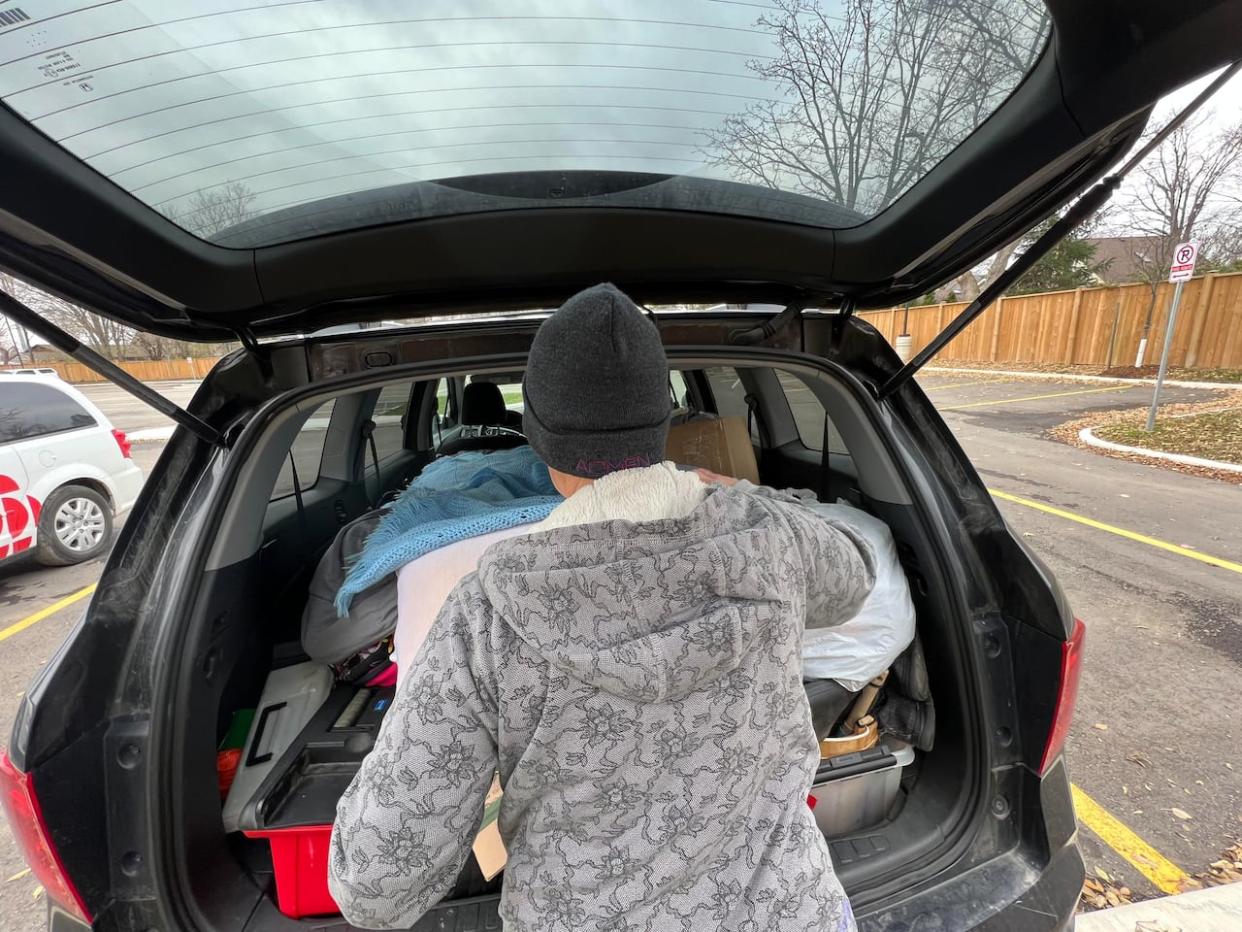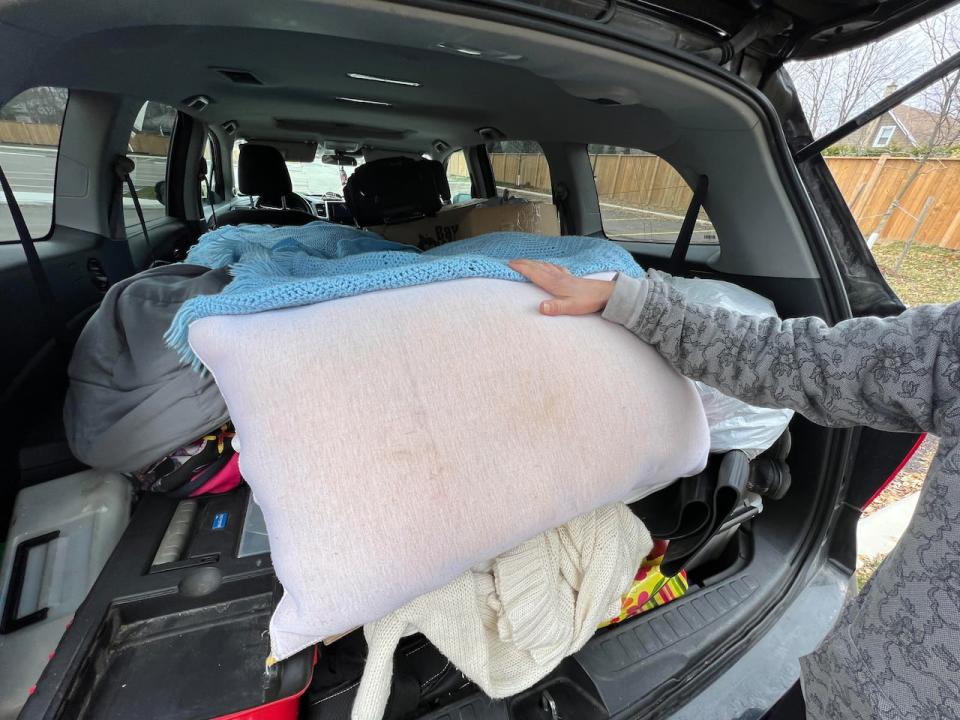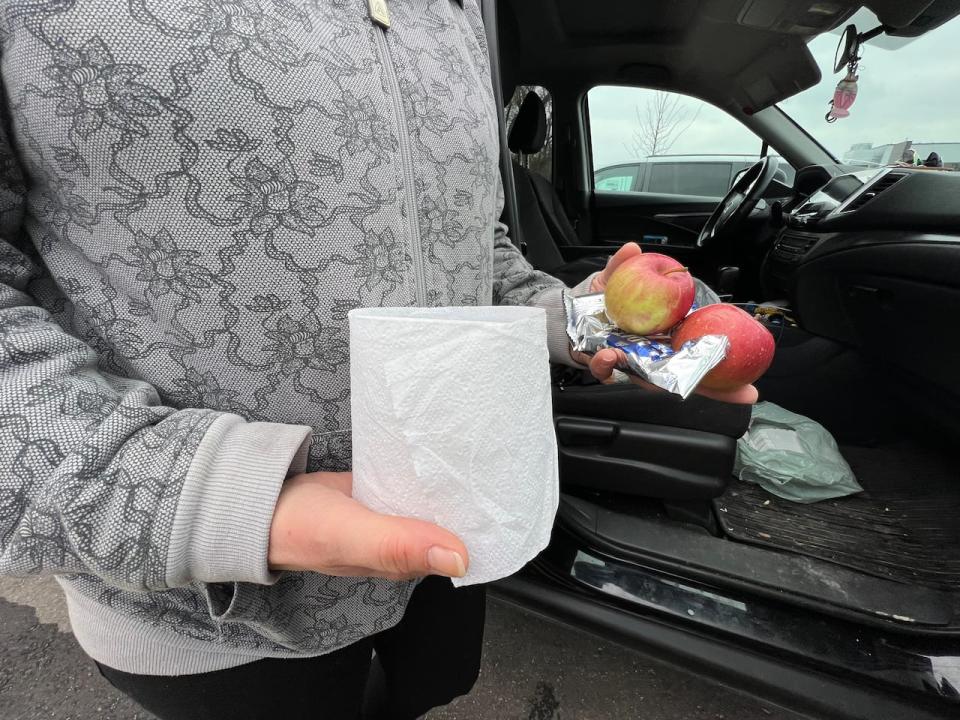'Homeless overnight': She works full time, and sleeps in her car

As she delivered her fall economic update earlier this week, federal Finance Minister Chrystia Freeland told the House of Commons "our country needs more homes — and we need more of them, fast."
For one Ontario woman who's been living in her car since August, fast can't come fast enough.
The 45-year-old woman has been sleeping in her vehicle for the last three months while working full time and trying to find a new place to live. CBC News has agreed not to name her for safety reasons.
She told her story from a parking lot not far from London, Ont., where she had parked her vehicle for the night.
"Sometimes you can't find a safe place to sleep," she said. "I tend to sleep at bank [parking lots] because banks have cameras and I feel secure and safe there."
She relies on a wool blanket to keep warm, cardboard window blinds carved from boxes for privacy and the goodwill of business owners to use the bathroom. She's learned that Tim Hortons is a good place to connect to WiFi.
Last night she didn't need to check the temperature to see the nights are getting colder as December draws near.
"I had a cup of ice in my vehicle, I went to bed and the next morning. I got up and I realized it was still a cup of ice," she said. "That was alarming."
And while she may, for now, be experiencing homelessness, she's not unemployed. She continues to work the same retail marketing job she's held for two years. Her employer has good benefits, and covers her gas and cellphone bill so she can travel to meet customers across southwestern Ontario, from Collingwood to Windsor to Niagara — and everywhere in between.
Her job pays just under $20 an hour in a province with a $16.55 adult minimum wage.
So how did she end up homeless?
It all started with a historic rainstorm last August. At the time, she was living in a basement suite in Glencoe, Ont., a town of just over 2,000 people located about 50 kilometres southwest of London.

The woman now sleeps in the back of her vehicle with a wool blanket and pillow. She says living in her car is becoming more difficult as the days grow shorter and the nights colder. (Andrew Lupton/CBC)
Her living space filled with a foot of water — and when her landlord asked her to end her lease to make way for months of repair work, she agreed. Her possessions that were not too water damaged to keep are now in two storage lockers.
Since then, she's been living in her Honda. When she's not meeting with a client, she's looking for places to live. She has filled out scores of rental applications but one barrier keeps getting in the way: a poor credit score.
She's had lean times over the past few years, but said she's put a priority on paying rent over zeroing her monthly credit card balance. She has a letter of reference from her past landlord but said that hasn't been enough to secure place of her own when each apartment draws dozens of applicants.
"I always made sure my rent was paid because I needed a roof over my head," she said. Landlords have told her "many times" that her credit score is a problem.
She said typical monthly rents for apartments she's viewed are in the $1,500 to $1,700 range, which she said would stretch her budget too far to afford other basics.

An Ontario woman who's been living in her car since August says she keeps a stash of snacks and toilet paper on the passenger seat. After three months of being unable to find her own place, she plans to move in with her son and his partner on Dec. 1. (Andrew Lupton/CBC )
But if things go according to plan, her time in the cold may soon be coming to an end.
She plans to move in with her son and his partner on Dec. 1 when he moves into a London apartment. That arrangement has an agreed upon duration of a year. During that time she plans to keep working and continue looking for a place, she said.
Her message to others is simple: Have empathy to those who have no place to live, and don't make assumptions about why they are unhoused.
"When I see others in homeless situations, huddling in corners trying to stay warm, it just breaks my heart," she said. "Anyone can be homeless overnight and that's what happened to me."


